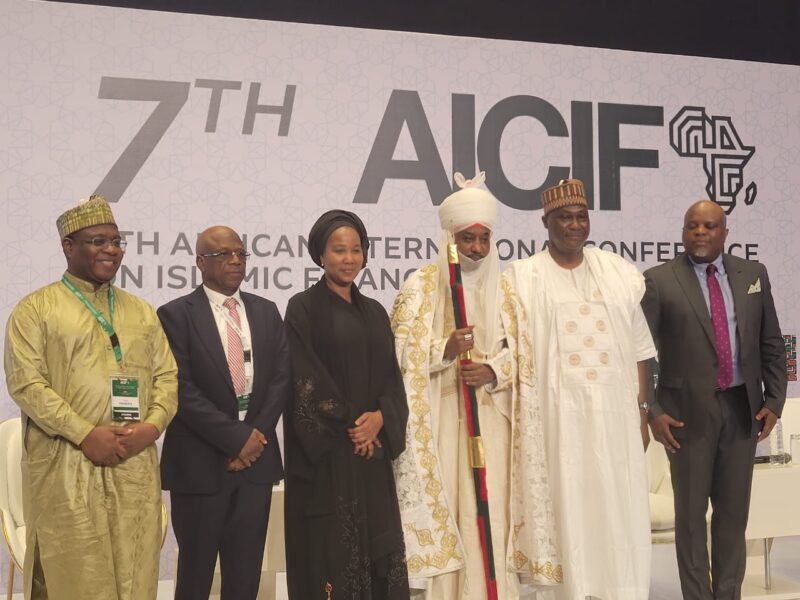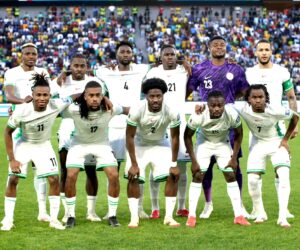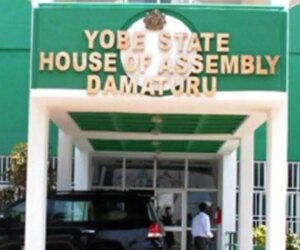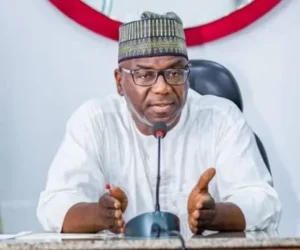The Emir of Kano and former Governor of Central Bank of Nigeria (CBN), Muhammadu Sanusi II, on Tuesday. highlighted a disconnect between the Gross Domestic Products (GDP) and the peoples’ standard of living.
He stated that GDP growth in one niche of the economy may lead to a situation where “the vast majority of the population is getting much poorer, while GDP is growing.”
He spoke in Lagos on Tuesday while delivering his keynote address at the 7th African International Conference on Islamic Finance (AICIF).
SPONSOR AD
The Conference, was organised by the Metropolitan Law and Metropolitan Skills Ltd in collaboration with the Securities and Exchange Commission of Nigeria (SEC), was themed “Africa Emerging: A Prosperous and Inclusive Outlook.”
Sanusi said often the economists take an “helicopter view” of the GDP and inflation numbers, but lose sight of small numbers which he described as “absolutely crucial.”
According to him, inflation numbers may come down but the items consumed by the poor such as basic drugs and basic food may be getting out of reach of the poor.
He said, “Now, to speak about growth and inclusivity. Economists, this is where we have a problem. There are two ways to look at an economy. You have this helicopter view, which we do all the time. We look at GDP numbers. We look at GDP growth. We look at inflation and so on. These are beautiful statistics and it’s important to look at them.
“Unfortunately, too often, looking at these big numbers, we lose sight of small numbers that are absolutely crucial. A GDP growth of 5% or 6% may look good if it is in one niche corner of the economy, you might actually have the vast majority of the population getting much poorer, while GDP is growing.
“Inflation numbers may come down but the items consumed by the poor such as basic drugs and basic food may be getting out of reach of the poor.”
In dealing with inclusivity, he challenged Islamic financial institutions to go back to the basics.
“Islamic financial institutions need to go to the bottom of the pyramid. You cannot talk about inclusivity If you are not where the people are.
“You sit in Lagos, Abuja and you book loans, those loans do not improve the livelihood of the people in the rural areas, in the small towns. And these are the tens of millions of Nigerians who actually need support.
“The mechanic, the small restaurant owner, the seamstress with a fashion design shop, these Small and Medium Enterprises that employ 70% of our population. And until we begin to grow those, we are not going to have the growth that is inclusive. We can continue having a rapid GDP growth and it’s all in financial services, it is in Information Technology, in order and gas, not likely to spread to the bottom,” he said.
Sanusi also challenged challenged Islamic financial institutions to be more ambitious to invest the capital that will grow a bank with the network that will reach out to people.
“That is the only way these instruments and these funds can reach the bottom of the pyramid,” he said.
Quoting statistics, Sanusi said by 2050, 85% of all the poverty in the world will be in Africa. 85%, half of which will be in Nigeria and the DRC.
“And in Nigeria, 70% of that will be in Northern Nigeria,” he said, calling for the need to use finance to create the economies for those he called small scale people.
Beyond providing finance, the Emir said the Islamic finance mechanisms have the role to play in correcting certain cultural practises that “are not Islamic practises, which have been used to marginalise women and deny them economic opportunities.”
Concluding, he told the Islamic financial system to “Go to the grassroots, have the courage to take the risks to build, to up scale and then correct these conceptions, as far as women are concerned; correct these cultural conceptions, cultural attitudes that have denied women this opportunity because the empowerment of women is, what is going to add to the prosperity of the African people.”
IDEAL FOR Civil/Public servants, Engineers, Doctors, Entrepreneurs, IT Experts/Software Developers, Top Bankers and more.







